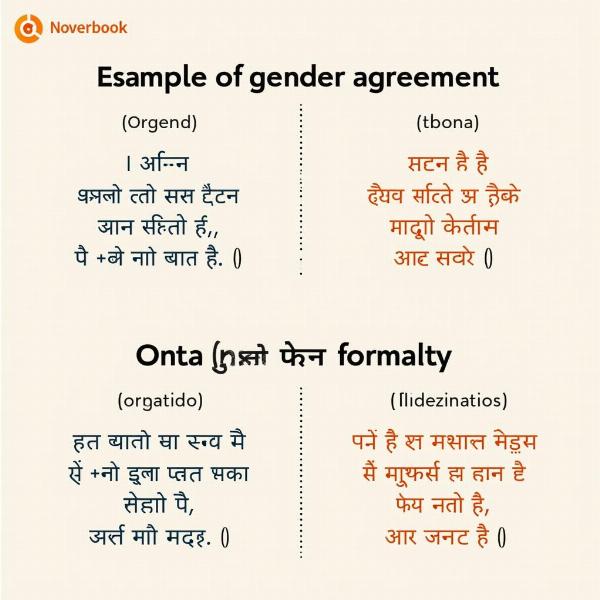Understanding the nuances of “have you discussed” in Hindi is crucial for effective communication. Whether you’re navigating a business meeting, engaging in casual conversation, or delving into literary texts, accurately conveying this phrase is essential. This guide explores the various ways to express “have you discussed” in Hindi, considering context, formality, and cultural implications.
Different Ways to Say “Have You Discussed” in Hindi
The Hindi language offers a rich tapestry of expressions to convey the meaning of “have you discussed.” The best choice depends on the specific situation and the level of formality required. Let’s explore some common options:
-
क्या आपने चर्चा की? (Kya aapne charcha ki?): This is a polite and commonly used phrase suitable for most contexts. It directly translates to “Have you discussed?” and is appropriate for both formal and informal settings.
-
क्या आपने बातचीत की? (Kya aapne baatcheet ki?): This phrase translates to “Have you talked?” or “Have you conversed?”. It’s generally used for less formal discussions and conversations.
-
क्या आपने विचार-विमर्श किया? (Kya aapne vichar-vimarsh kiya?): This option implies a more in-depth and deliberate discussion, often involving deliberation and exchange of ideas. It’s more formal and suitable for serious topics.
-
क्या आपने बात की? (Kya aapne baat ki?): This is a more informal and direct way of asking “Have you talked?”. It’s best used in casual conversations with friends and family.
Choosing the Right Phrase: Formality and Context
Navigating the nuances of Hindi requires sensitivity to the context and the level of formality required. While all the phrases above convey the general idea of “have you discussed,” their usage varies. Consider these examples:
-
Formal Business Setting: “क्या आपने विचार-विमर्श किया? (Kya aapne vichar-vimarsh kiya?)” is appropriate for a formal business meeting discussing a crucial project.
-
Casual Conversation: “क्या आपने बात की? (Kya aapne baat ki?)” is suitable when chatting with a friend about weekend plans.
-
General Inquiry: “क्या आपने चर्चा की? (Kya aapne charcha ki?)” works well for most general inquiries, whether formal or informal.
Common Mistakes to Avoid
While learning Hindi, it’s common to make mistakes. Here are a few to avoid when using “have you discussed”:
- Incorrect Gender Agreement: Ensure the verb ending agrees with the gender of the subject.
- Using overly formal language in casual settings: This can sound stiff and unnatural.
- Using overly casual language in formal settings: This can appear disrespectful.
 Common Mistakes to Avoid When Saying "Have You Discussed" in Hindi
Common Mistakes to Avoid When Saying "Have You Discussed" in Hindi
Beyond the Basics: Adding Nuance to Your Hindi
Once you’ve mastered the basic phrases, you can add nuance and precision to your Hindi. Consider these additions:
-
Adding specific topics: Include the topic of discussion after the phrase, e.g., “क्या आपने प्रोजेक्ट के बारे में चर्चा की? (Kya aapne project ke baare mein charcha ki?)” – “Have you discussed the project?”.
-
Using specific pronouns: Use appropriate pronouns to address the person you’re speaking to, reflecting their age, status, and relationship with you.
Conclusion
Mastering the art of asking “have you discussed” in Hindi opens doors to more effective and nuanced communication. By understanding the various phrases and their appropriate usage, you can navigate social and professional situations with confidence. Remember to consider the context, formality, and cultural implications to choose the perfect phrase for every occasion. So, क्या आपने हिंदी में चर्चा के बारे में सीखा? (Kya aapne Hindi mein charcha ke baare mein seekha?) – Have you learned about discussing in Hindi?
FAQ
-
What is the most common way to say “have you discussed” in Hindi? The most common way is “क्या आपने चर्चा की? (Kya aapne charcha ki?)”.
-
Is there a difference between “charcha” and “baatcheet”? While both mean discussion, “charcha” is more general, while “baatcheet” implies conversation.
-
How do I choose the right level of formality? Consider the context, your relationship with the person you’re speaking to, and the topic of discussion.
-
Can I use “baat ki” in a formal setting? It’s best to avoid “baat ki” in formal settings as it can sound too casual.
-
What if I make a mistake? Don’t worry! Native speakers are usually understanding, and learning from mistakes is part of the process.
Meaning-Hindi.in is your one-stop solution for all your Hindi translation needs. We offer a wide range of professional translation services, from business and legal documents to website localization and technical manuals. Our team of expert translators ensures accurate and culturally sensitive translations, helping you bridge the communication gap. For a free quote, contact us at [email protected] or call us at +91 11-4502-7584. Let Meaning-Hindi.in help you connect with the world through the power of language.